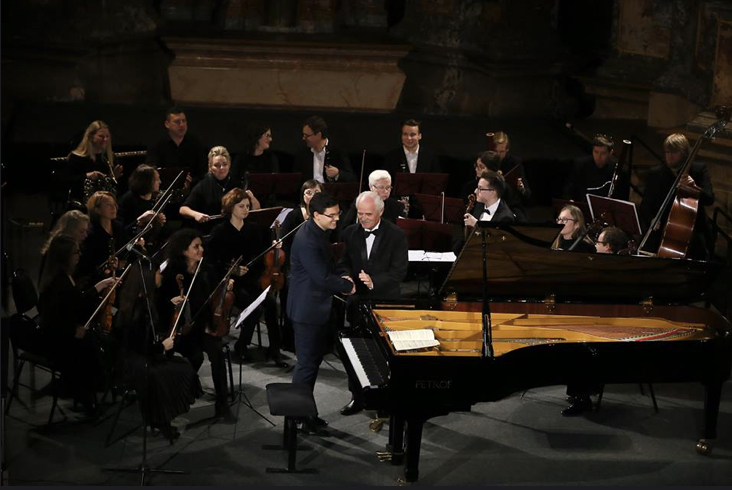North America vs Europe – the Classical Music Experience
Having lived, worked, studied and performed in North America and Europe (he moved to Poland in September 2014, to further his musical education), Jarred has some clear thoughts on the differences between the two classical music environments. It makes you wonder what Canadian society and culture would be like, if we embraced a more European view on musical education.
How long were you living in Poland?
Full time for 5 years, but on and off for 6.
What were some of the biggest differences you found when comparing musical education in North America to Europe?
In Canada, higher education costs money. In Europe, higher education is free.
If a parent knew they could send their kids free of charge, for a couple of hours per week for personalized music lessons with a highly qualified teacher (which is essentially learning the use of the body and mind, creativity, expression, clarity, discipline, helps math and linguistic skills to develop faster), I can’t think of a parent who would turn this down unless the child was not interested. The students in Europe are studying with professors from elementary school. Music is a part of the education as much as science, mathematics, language acquisition. In Canada, it’s an extra privilege that is the first thing to be taken away when the economy becomes even slightly unstable.
Is one place more competitive than the other in terms of performances, connections, and career goals?
In Europe, the possibility for a career is much bigger. Music is easily accessible, and it’s part of the national narrative to have artistic and cultural heroes. Imagine if you walked by statues of our musical icons every day and streets were named after them in every city.
In Poland, there’s a very system in place for music education, similar to how it works in North America if you want to become a doctor. Furthermore, if you decide you want to become a professional musician and you practice to this end, then there are many (more) outlets available to you to accomplish that.
How do you feel classical music enriches the world?
When we listen to classical music, we are listening to ourselves and our fantasies, imaginations and emotions. This gives us a sense of unity within our individuality.
When it comes to classical music, where do you think the Canadian scene should go?
Upwards, quickly. We need to make music accessible to as many people as possible: and this is the basis of the free education in Poland.
Do you have any ideas on how to make this change happen?
We are still figuring out how to keep audience numbers up. Marketing isn’t such a well-understood practice here as it is in the United States, nor is music as generally accessible as it is in Europe. There isn’t as much focus on building community concert series, or gaining enough financial leverage to keep a series alive. If we could focus more on music education in public school systems, and having more access to private lessons, I think our lives would be much richer and easier. I know of arts-specific high schools that do try to balance between usual curriculum and an arts-intensive education, but the fact is that private lessons — the space to develop a student into a performer — are often too expensive. In order to become an artist, you need to be steeped in the discipline for a long time. We should also encourage and help facilitate students to be able to study abroad.
What were some of the biggest differences you found when comparing musical education in North America to Europe?
If you go to Europe to study music, you learn that music is life. There are so many great teachers in Europe. The ones that I studied with just happened to be the ones that I clicked with. To become a renowned professor, one has to have tremendous performance career or be able to teach in such a way that after only a few hours, the student plays significantly better. You really have to be able to change the fundament of the student. Sometimes in Canada we are caught up in the process of learning that we forget that sometimes it’s best to make changes decisively. Do the work right here and now. As a teacher, that’s a very valuable habit. Sometimes it’s as simple as ‘you’re playing too fast’ so you need to stop playing like that: make the change. Now. Forget about what process we’re going to use to make it happen and just do it. This is a broad statement but I have seen that music education in North America emphasizes well-roundedness whereas European education emphasizes specializing in one discipline at a time.
Performing Mozart Piano Concerto in A Major, K488, with Lithuanian Chamber Symphony in Vilnius (November 2018)

